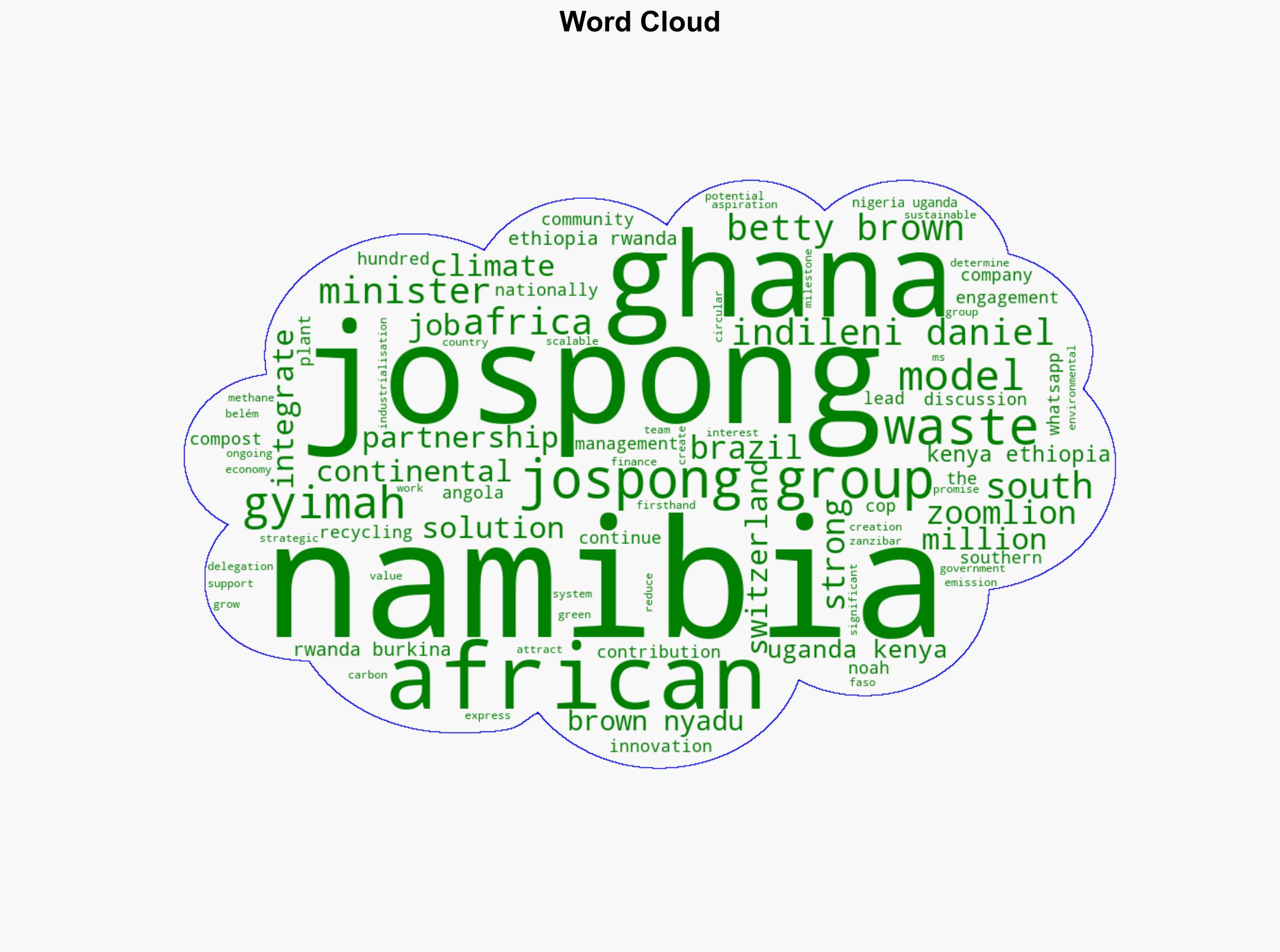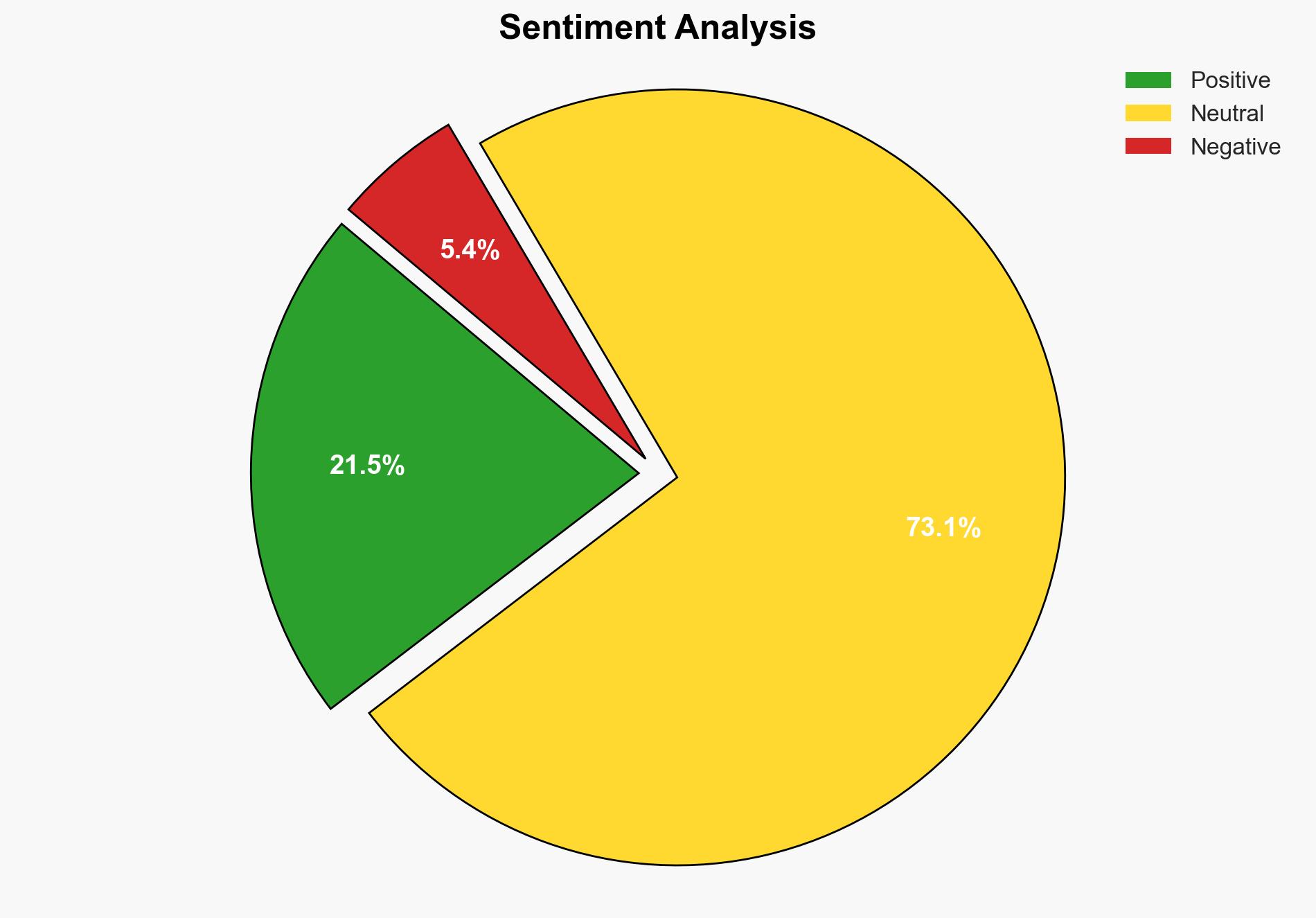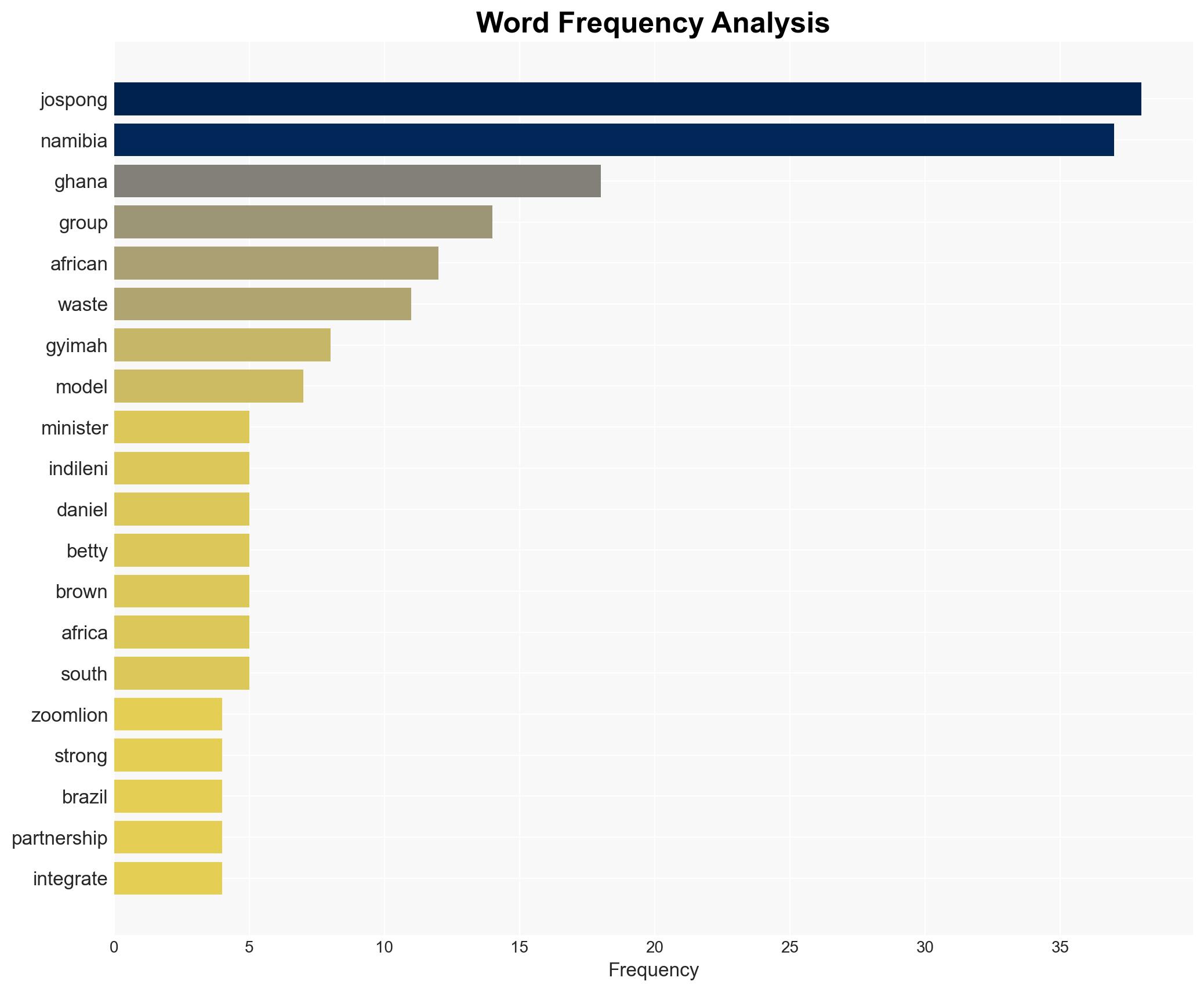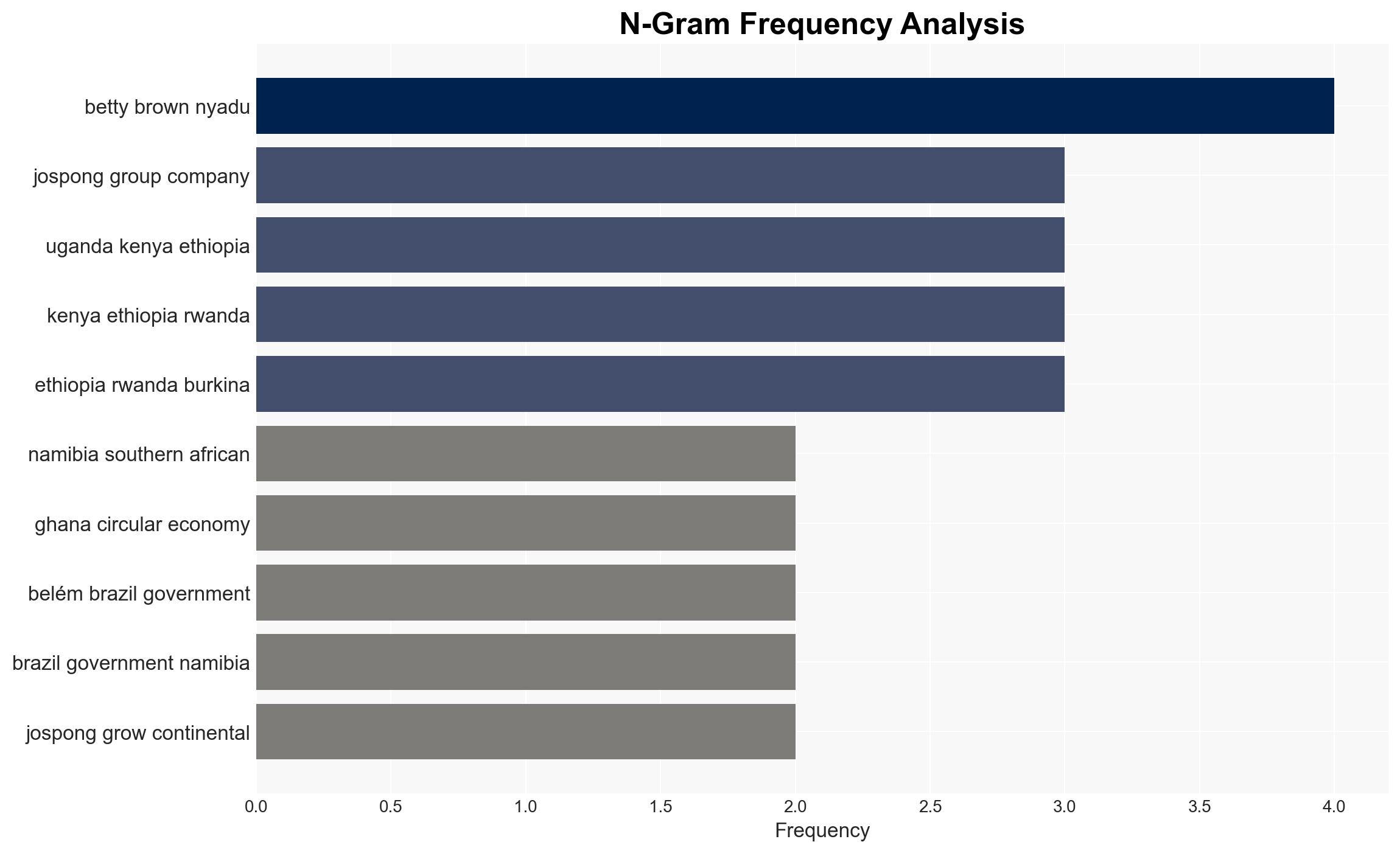Jospongs Growing Continental Footprint Attracts Namibia – Thechronicle.com.gh
Published on: 2025-11-21
AI-powered OSINT brief from verified open sources. Automated NLP signal extraction with human verification. See our Methodology and Why WorldWideWatchers.
Intelligence Report: Jospong’s Expansion into Namibia
1. BLUF (Bottom Line Up Front)
The Jospong Group’s strategic expansion into Namibia represents a significant opportunity to establish a leading position in Africa’s waste management sector. The most supported hypothesis is that Jospong’s model will be successfully integrated into Namibia, enhancing the country’s waste management capabilities and contributing to its environmental and economic goals. Confidence Level: Moderate. Recommended action is to monitor the partnership’s progress and assess its scalability and adaptability to other regions.
2. Competing Hypotheses
Hypothesis 1: Jospong’s partnership with Namibia will be successful, leading to effective waste management solutions and job creation, aligning with Namibia’s environmental goals.
Hypothesis 2: The partnership may face challenges due to potential misalignment in strategic objectives, bureaucratic hurdles, or inadequate adaptation of Jospong’s model to local conditions, leading to limited success.
The first hypothesis is more likely due to the expressed commitment from both parties and Namibia’s proactive approach in seeking scalable waste solutions. However, the second hypothesis cannot be dismissed given the complexities of cross-border partnerships and potential local resistance.
3. Key Assumptions and Red Flags
Assumptions: It is assumed that both parties have a genuine commitment to the partnership and that Jospong’s model is adaptable to Namibia’s specific needs. There is also an assumption of political stability and support for the initiative.
Red Flags: Potential red flags include bureaucratic delays, resistance from local stakeholders, and unforeseen economic or political changes in Namibia that could impact the partnership.
4. Implications and Strategic Risks
The successful implementation of Jospong’s model in Namibia could set a precedent for similar initiatives across Africa, potentially leading to increased regional cooperation in waste management. However, failure could undermine confidence in such partnerships and deter future investments. Economic risks include potential misallocation of resources if the model does not deliver expected outcomes. Politically, any perceived failure could impact Namibia’s government credibility.
5. Recommendations and Outlook
- Conduct a detailed risk assessment to identify potential obstacles and develop mitigation strategies.
- Engage with local stakeholders to ensure alignment and support for the initiative.
- Monitor the partnership’s progress and adapt strategies as necessary to ensure success.
- Best-case scenario: The partnership leads to significant improvements in Namibia’s waste management, creating jobs and reducing emissions.
- Worst-case scenario: The initiative fails to meet its objectives, leading to wasted resources and damaged reputations.
- Most-likely scenario: The partnership achieves moderate success, with some challenges but overall positive outcomes.
6. Key Individuals and Entities
Noah Gyimah, Betty Brown Nyadu, Indileni N. Daniel, Jospong Group, Government of Namibia.
7. Thematic Tags
Regional Focus, Regional Focus: Africa, Waste Management, Environmental Sustainability, Economic Development
Structured Analytic Techniques Applied
- Causal Layered Analysis (CLA): Analyze events across surface happenings, systems, worldviews, and myths.
- Cross-Impact Simulation: Model ripple effects across neighboring states, conflicts, or economic dependencies.
- Scenario Generation: Explore divergent futures under varying assumptions to identify plausible paths.
Explore more:
Regional Focus Briefs ·
Daily Summary ·
Support us





